How a Yorkshire mountain rescue team - with search dogs Olly and Cassie - is adapting to life under lockdown
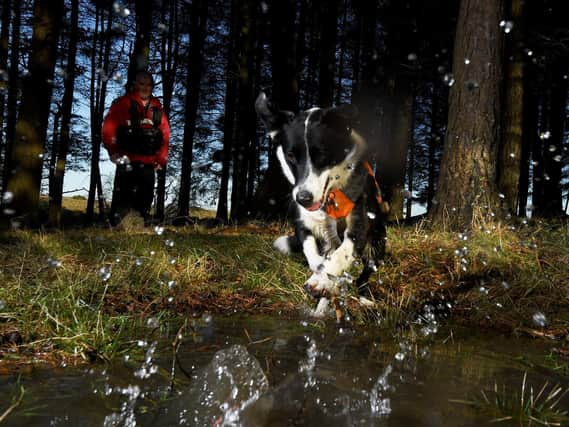

Here in the craggy landscapes of Yorkshire's Northern Dales there are areas that are impassable to all but the most highly trained.
It is volunteers, with search dogs Olly and Cassie, that form rescue support over some of the region's remotest communities.
Advertisement
Hide AdAdvertisement
Hide AdAs winter begins to ease its icy embrace, the Swaledale Mountain Rescue Team rallies in an extraordinary year.
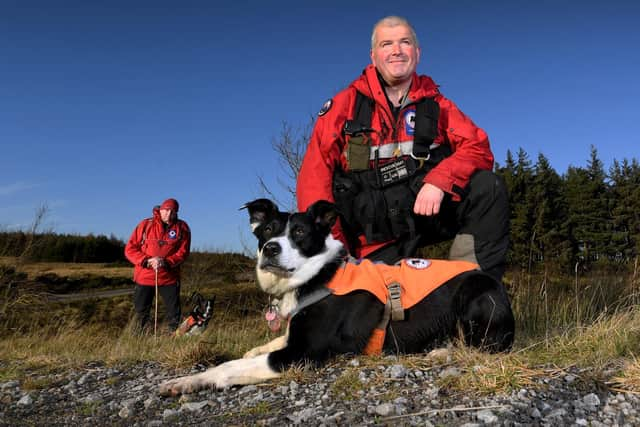

While much of the world has ground to a tremoring halt, they are finding ways to adapt.
It takes no small measure grit to serve in these 'gnarly' old hills, said dog handler Ian Speirs , but there is a trust instilled in training that comes to the fore.
"There is a lot of hard work, and dedication, as a mountain rescue volunteer," said Mr Speirs.
Advertisement
Hide AdAdvertisement
Hide Ad"You've got to be a team. It's that team response that gets results - that camaraderie and relying on each other in these wild remote places."
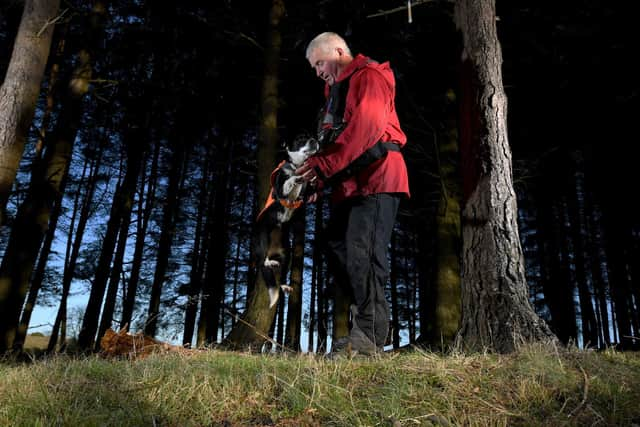

This is a team made up of 35 volunteers, that covers some 600sq miles of the Northern Dales from Swaledale to Wensleydale to the upper reaches of Harrogate.
All are keen outdoors-folk, but in their day jobs are teachers and doctors, a dance studio owner. Mr Speirs works in emergency planning for Harrogate Council.
He works with search dog Olly, aged nine, a fully graded search and rescue collie who has been on the callout list for nearly seven years.
Advertisement
Hide AdAdvertisement
Hide Ad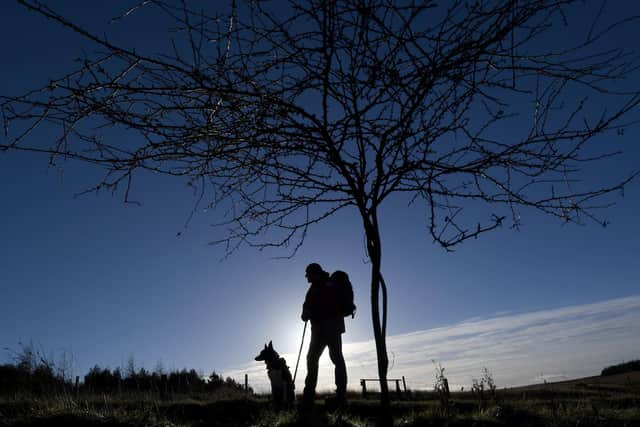

Fellow handler Tim Cain works with Cassie, aged six, who has been on the callout list for three years. She is described as a "diva", who loves to play.
These animals are experts at what they do, undergoing rigorous avalanche training and using their scent to clear areas, supporting rescue teams across the North East.
And while Swaledale's is one of five mountain rescue units that serve the county of North Yorkshire, this area can cover the definition of remote.
Between small villages and tiny hamlets there are vast landscapes of thickly forested woodland, deep crags and rivers that rise at a rapid pace.
Advertisement
Hide AdAdvertisement
Hide Ad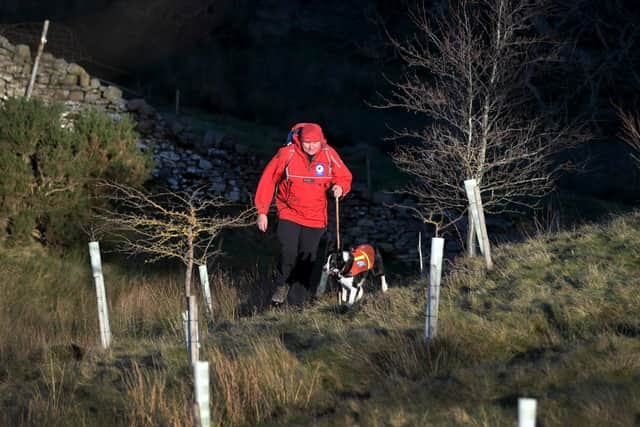

This is lead mining country, where legend has it that as much as 60 per cent of the cannonball lead spent at Waterloo originated, and where the caves remain.
Rescues
More often than not, said Mr Speirs, it is sheep or dogs that need rescuing rather than people, after falling through to the pits. But there have been times when it's been urgent.
Last year the team came to the aid of its own community, when flash flooding hit near Reeth.
Then there are the walkers, lost on the moors, such as 80-year-old Harry Harvey who spent three days wild camping in September after becoming separated from his walking group.
Advertisement
Hide AdAdvertisement
Hide AdThere have been rescues, said Mr Speirs, when he hasn't been able to see more than a few metres for driving rain.
Where, crawling through the hawthorne trails, all he can do is trust in Olly instinct's and follow the familiar sound of the bell he wears on his collar.
"You've got to have the mental stamina, a toughness to say 'I'm alright here'," he said, in describing the challenges of a rescue role in the most unusual of times.
"You've got to have an understanding of your landscape.
"I've seen some absolutely beautiful sun rises and sun sets," he added. "But we have got some really nasty, gnarly places on the ground as well.
Advertisement
Hide AdAdvertisement
Hide Ad"There is a commitment from the team. They are out there because they want to give something back."
Adapting
When lockdown hit last March, the team had initially halted all face-to-face training, turning to Microsoft Teams to keep in practice online.
There were further challenges, as the charity saw its usual resources disappear with the cancellation of events and closure of many businesses.
As time has gone on they have adapted, launching a crowdfunder to raise money for a new vehicle, and working within the rules to train.
Advertisement
Hide AdAdvertisement
Hide AdA call for support could come at any time from police or paramedics, but for a full eight weeks under the first lockdown communities stayed at home.
There was a slow return, but the vast majority of people have been sensible, said Mr Speirs, respecting pressures put on rescue teams.
"We would never say don't go to the hills, but only do it when it's safe and appropriate," he said. "Most people achieve that balance."
___________________________________________________________________________________________
Advertisement
Hide AdAdvertisement
Hide AdSupport The Yorkshire Post and become a subscriber today. Your subscription will help us to continue to bring quality news to the people of Yorkshire. In return, you'll see fewer ads on site, get free access to our app and receive exclusive members-only offers. Click here to subscribe.